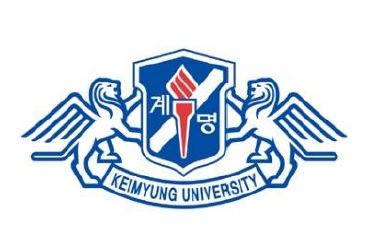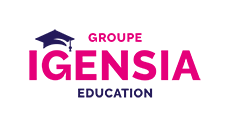Keimyung University

Strengths
Keimyung University was founded in 1954 by Reverend Edward Adams, an American missionary with the Presbyterian Church in the Northern United States, and Reverends Choi Jaehwa and Kang Ingu, two local Presbyterian Church leaders.
The founding principle guiding their concerted efforts was to provide Koreans with a higher education firmly rooted in Christianity. The opening of the university also reflected the perceived need for higher education as a means of rebuilding the war-torn nation and perpetuating the age-old spirit of the Korean people.
Major, Academics
You’ll take courses in English au Keimyung Adams College (KAC)
https://www.kmu.ac.kr/uni/eng/page.jsp?mnu_uid=3584&
Campus
You’ll be on the Seongseo Campus.
The International Education Center, where the KAC is located, was built in 2007. Facilities include a PC lab, numerous study rooms and a room for the Student Leadership Association. All KAC classrooms are also equipped with multimedia systems.
https://www.kmu.ac.kr/uni/eng/page.jsp?mnu_uid=3500&
https://www.kmu.ac.kr/uni/main/download/sub01/keimyung_univ/indexe.html
The Seongseo campus has four student cafeterias serving a variety of inexpensive Korean, Chinese and Western dishes.
On-campus activities are offered on a regular basis.
The Korean Cultural Experience Program (KCEP) offers students unique opportunities to experience traditional Korean culture in the campus’ traditional Korean village, Keimyung Hanhakchon. A variety of courses on art, music, crafts and calligraphy are offered once a week throughout the semester.
Bisa, a winged lion flying towards the sky, is the emblem of Keimyung University.
It depicts a noble, powerful lion rising from the ground and soaring skyward, wings wide open.
Overall, Bisa reflects the values that guide the people of Keimyung: truth, justice and love.
To discover
Daegu, which literally means “broad hill”, is located in a basin surrounded by mountains and is the country’s third-largest city.
Located 3 hours by train from Seoul and less than 1 hour from Busan, it is easily accessible from the rest of the country. Daegu has retained its provincial charm and is an ideal base from which to explore the region. Hub étudiant is also a relaxed city, full of street food stalls, small bars and restaurants.
Daegu is known as a center of manufacturing and retailing, so you’ll have the opportunity to discover various markets like the herbal market near the central Yasigolmok district or the Seomun textile market… but also product-specific streets like Rice Cake Street, Motorcycle Street, Shoe Street and Sock Street. If you’re more into historical and cultural discovery, there’s the ancient Confucian academy of Daegu Hyanggyo, Gyesan Cathedral, Donghwasa Termple and Haeinsa Temple. For hikers, don’t miss Palgongsan Provincial Park, some 20km north of Daegu.
Good to know
Surrounded by mountains, Daegu is known for its humid subtropical climate, which makes for very hot summers. The town is nicknamed “Daefrica”, a contraction of its name and Africa.
What's going on?
https://onlinenewspapers.com/south-korea.shtml
https://www.world-newspapers.com/countries/asia/south-korea
The data is for information only. Please visit the partner university’s website to make sure you have the most up-to-date information.
Eligibility
Score TOEFL : 533
ABS: 2nd, 3rd, 4th year
ESAM: 3rd, 4th year
ICD PGE
ISCPA COMM: 2nd (Paris)
Documents required
Resume (in English)
Transcript of records
ID Document
Cover letter (in English)
Additional documents will be requested according to the destination
Planning
AUTUMN
Orientation: few days before lectures start
Lectures start: early September
End of lectures and exams: mid-December
SPRING
Orientation: few days before lectures start
Lectures start : end of February
End of lectures and exams: end of June
more information: https://www.kmu.ac.kr/uni/eng/page.jsp?mnu_uid=3836&
Procedures
Passport valid for six months after your return date.
Visa is required.
The Korean government requires all foreigners enrolled in programs offered by Korean higher education institutions to subscribe to national health insurance (approx. $70).
For more information: https://youtu.be/cUC3B0BnJ5U
Accommodation
You’ll have the option of staying on campus in a dormitory.
Expect to pay around €400/month without meals for a room shared with another student, or €950/month with 2 meals a day included.
Normally, international students share a flat with a Korean student.
more information:
https://www.kmu.ac.kr/uni/eng/page.jsp?mnu_uid=3632&
http://newcms.kmu.ac.kr/dorm/1884/subview.do


